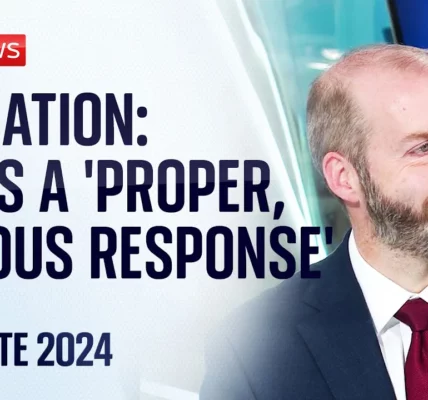The Struggles of NHS Patients: A Closer Look at Waiting Times and Endometriosis

This article delves into the critical issue of NHS waiting times, highlighting personal accounts of patients suffering from endometriosis. It aims to shed light on the systemic challenges within the healthcare system while examining the emotional and physical toll on individuals waiting for treatment.
Introduction to NHS Waiting Times and Patient Experiences
The National Health Service (NHS) in the UK has long been regarded as a beacon of free healthcare, yet recent statistics reveal a troubling reality. Millions of patients are currently caught in a web of extended waiting times for treatment, exacerbated by the COVID-19 pandemic. This article focuses on the personal narratives of individuals suffering from endometriosis, a condition that affects many women, and the emotional and physical toll caused by prolonged waits for medical intervention. Patients like Jasmine and Lexi represent the countless voices advocating for change and timely care.
The Impact of NHS Waiting Lists
As of late 2023, the number of patients waiting for treatment on the NHS has surged to approximately 7.5 million. This influx can be attributed to various factors, including the pandemic’s aftermath, staffing shortages, and increased demand for services. The consequences of these waiting lists are dire, affecting not only patients’ physical health but also their mental well-being.
Statistics and Trends
- Waiting lists have doubled since the pandemic.
- Over 4,000 extra appointments are promised weekly to combat the issue.
- 39% of the public prioritize reducing waiting times as a key issue for the next government.
Personal Stories: Jasmine and Lexi’s Experiences
To understand the human side of this crisis, we delve into the stories of Jasmine and Lexi, two young women battling endometriosis. Their experiences illuminate the profound emotional and physical struggles faced by many waiting for treatment.
Jasmine’s Journey
Jasmine began experiencing symptoms of endometriosis at the tender age of 12. Despite her condition, she faced a staggering wait of 1 year and 7 months for surgery, during which her appointments were canceled multiple times without satisfactory explanations. This left her feeling devalued and neglected by the healthcare system.
Lexi’s Struggles
Similarly, Lexi’s journey has been fraught with cancellations and delays. Her initial appointment was scheduled for 2022 but faced multiple rescheduling. Lexi recounted, “I spent a year calling the hospital for updates, often feeling like I was more in touch with the administrative staff than my friends and family.” The emotional weight of her situation, coupled with the physical pain of endometriosis, has led to a significant deterioration in her quality of life.
The Psychological Effects of Waiting
The waiting game for treatment can take a toll on mental health. Patients report feelings of despair, anxiety, and frustration as they navigate lengthy delays for necessary procedures. Both Jasmine and Lexi have articulated how these waiting periods have led them to some of their darkest moments.
Emotional Toll
The mental strain associated with waiting for treatment often manifests in various ways:
- Increased anxiety and stress levels.
- Feelings of hopelessness and depression.
- Impact on relationships with family and friends.
Systemic Challenges within the NHS
Understanding the broader challenges facing the NHS is crucial for grasping the context of patient experiences. Factors such as staffing shortages, increased demand, and strike actions have compounded the difficulties in delivering timely healthcare.
Staffing Crisis and Increased Demand
The NHS is currently grappling with a severe staffing crisis, which has been aggravated by the pandemic. This shortage has led to:
- Reduced capacity to handle patient loads.
- Increased burnout among existing staff, leading to further resignations.
- Extended waiting times for both routine and emergency care.
Political Promises vs. Reality
As election campaigns unfold, politicians make promises to address the NHS crisis. However, many patients are skeptical about whether these commitments will translate into real change. Jasmine poignantly expressed, “It’s one thing to make a claim on camera, but it’s another to actually deliver.” This sentiment reflects a widespread disillusionment with political rhetoric surrounding healthcare reform.
Conclusion: A Call for Change
The stories of Jasmine and Lexi highlight the urgent need for systemic change within the NHS. Their experiences underline the critical importance of addressing waiting times and ensuring timely access to treatment for all patients. As they continue to wait for their operations, they remain hopeful that the political promises made during this election campaign will bring tangible improvements to their lives and the millions of others caught in similar circumstances.
It is imperative that we advocate for a healthcare system that prioritizes patient needs and delivers timely care. For anyone experiencing similar challenges, consider reaching out to support groups and exploring all available options for treatment.
“`




